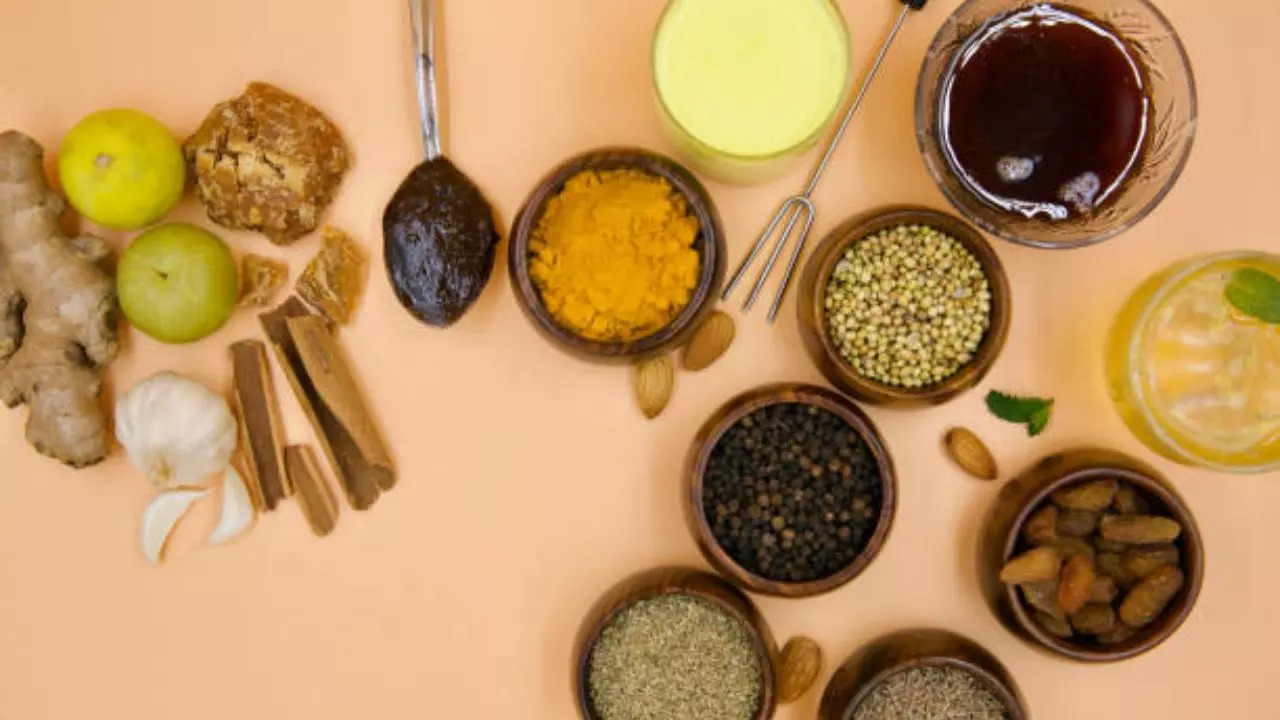Contents
-
news
-
Health
National Ayurveda Day: Including these herbs in your diet can help fight inflammation
Inflammation in your body can be extremely dangerous. Therefore, it is important that you keep track of your inflammation levels. Ayurveda can also help reduce inflammation in the body. Read on for a look at herbs you can include in your diet that may help fight inflammation in the body.

These herbs in your diet can help fight inflammation
Photo: iStock
National Ayurveda Day Every year it is celebrated on Dhanvantari Jayanti. This year is the 9th year ayurveda day And will be celebrated on 29th October. Ayurveda Day is celebrated on Dhanvantari Jayanti as he is considered the father of Ayurveda who is worshiped on Dhanteras. National Ayurveda Day was initiated by the Ministry of AYUSH and this year’s theme is “Ayurveda Innovations for Global Health”. The theme will focus on promoting Ayurvedic innovation to address global health issues.
Inflammation in your body can be extremely dangerous. Chronic inflammation is also a major risk factor for many diseases such as diabetes, high blood pressure, obesity and cancer. Therefore, it is important that you keep track of your inflammation levels. Ayurveda lists many methods that have the potential to cure diseases and health conditions. Similarly, Ayurveda can also help in reducing inflammation in the body.
Here, take a look at herbs you can include in your diet that can help fight inflammation in the body.
Turmeric
Turmeric contains curcumin which is a powerful antioxidant that helps reduce inflammation. Studies show that it can reduce symptoms of arthritis, muscle pain and inflammatory bowel conditions. You can mix it with black pepper as the piperine present in black pepper helps improve the absorption of curcumin.
Ginger
Gingerol is an active compound in ginger that has anti-inflammatory effects. It is especially effective for reducing joint pain, digestion and muscle pain after intense physical activities. Fresh ginger can be added to smoothies, teas and other dishes as they provide both taste and health benefits.
Boswellia (Indian Frankincense)
They are known for their boswellic acids which have strong anti-inflammatory properties. It is used in Ayurvedic medicine to improve joint health. It works by blocking enzymes that trigger inflammation, making it useful for osteoarthritis and inflammatory bowel diseases.
Holy Basil (Tulsi)
Tulsi, or holy basil, acts as an adaptogen, helping the body respond to stress that can lead to inflammation. Its anti-inflammatory effects come from its antioxidant compounds that are useful for managing stress-induced inflammation. You can use it in tea or as a refreshing garnish in dishes.
rosemary
Rosemary contains carnosic acid and rosmarinic acid which are compounds that help reduce inflammation. It is particularly beneficial for brain health as it reduces oxidative stress and inflammation associated with cognitive decline.
green tea
Although it is a tea, green tea contains high levels of catechins, especially EGCG (epigallocatechin gallate) as they help reduce inflammation at the cellular level. Drinking green tea regularly helps improve heart health, weight management and immune system.
cinnamon
Cinnamon has anti-inflammatory properties that come from cinnamaldehyde which is known to reduce signs of inflammation in the body. Sprinkle cinnamon on oatmeal, smoothies or coffee for health benefits.
Garlic
Garlic contains allicin which is known to have anti-inflammatory effects. It helps improve immune response. Regular consumption may help reduce inflammation related to arthritis and heart problems. You can consume it raw, as a topping or in cooked sauce.
Get the latest news live on Times Now with breaking news and top headlines from around the world.


